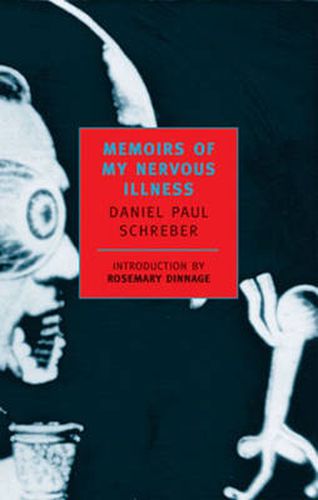Readings Newsletter
Become a Readings Member to make your shopping experience even easier.
Sign in or sign up for free!
You’re not far away from qualifying for FREE standard shipping within Australia
You’ve qualified for FREE standard shipping within Australia
The cart is loading…






Perhaps the most revealing dispatch ever received from the far side of madness. Daniel Schreber was born in 1842, and was a distinguished German judge when he suffered his first mental breakdown in 1884. He was never released from hospital.
Translated by Ida McAlpine and Richard A. Hunter Introduced by Rosemary Dinnage
In 1884 Daniel Paul Schreber suffered the first of a series of mental breakdowns that would lead to his permanent confinement in an insane asylum. He accused his doctors of ‘soul murder’ and composed this memoir to tell the public about his treatment and plea for his release.
One of the most revealing dispatches ever received from the far side of madness, Memoirs of My Nervous Illness made an extraordinary impression on Jung and was the subject of a controversial case history by Freud. It has continued to be an inspiration to writers like Walter Benjamin and Elias Canetti.
$9.00 standard shipping within Australia
FREE standard shipping within Australia for orders over $100.00
Express & International shipping calculated at checkout
Perhaps the most revealing dispatch ever received from the far side of madness. Daniel Schreber was born in 1842, and was a distinguished German judge when he suffered his first mental breakdown in 1884. He was never released from hospital.
Translated by Ida McAlpine and Richard A. Hunter Introduced by Rosemary Dinnage
In 1884 Daniel Paul Schreber suffered the first of a series of mental breakdowns that would lead to his permanent confinement in an insane asylum. He accused his doctors of ‘soul murder’ and composed this memoir to tell the public about his treatment and plea for his release.
One of the most revealing dispatches ever received from the far side of madness, Memoirs of My Nervous Illness made an extraordinary impression on Jung and was the subject of a controversial case history by Freud. It has continued to be an inspiration to writers like Walter Benjamin and Elias Canetti.